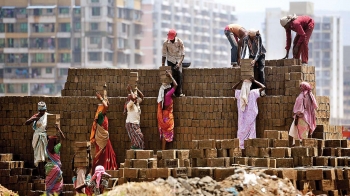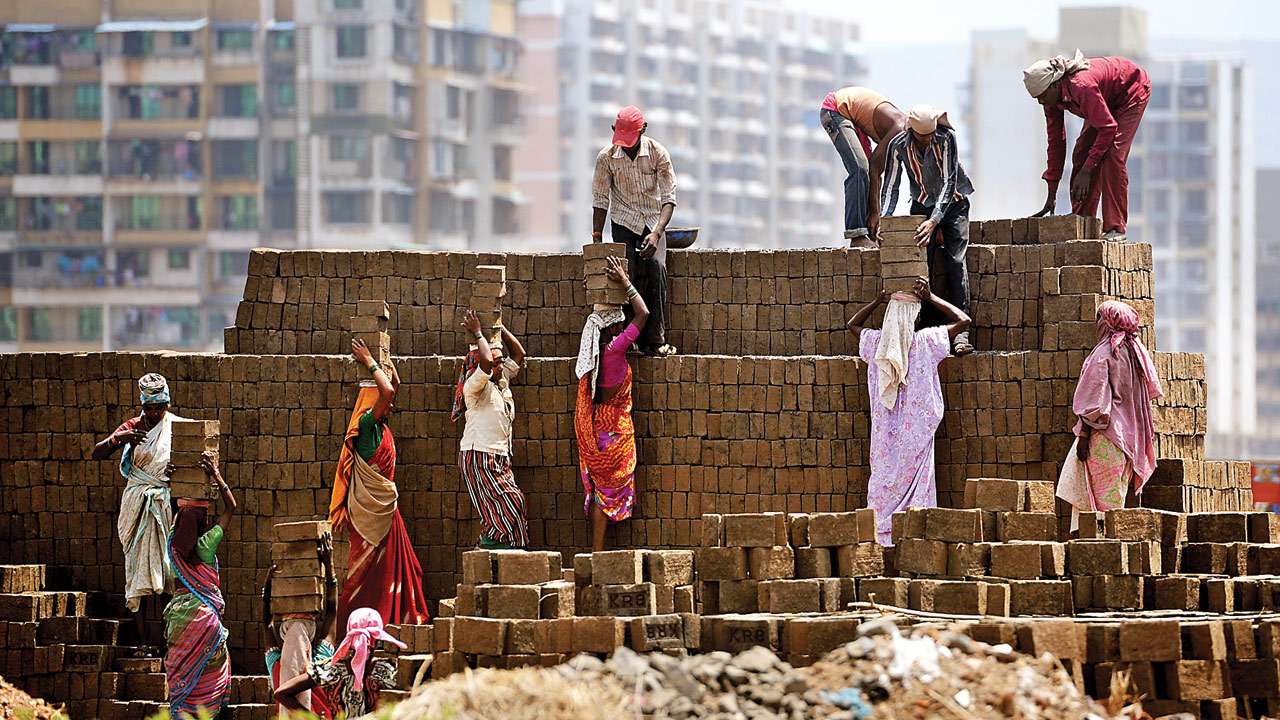
.jpg) Jose Vattakuzhy
Jose Vattakuzhy

Sandeep has been a street vendor in Delhi for eight years but recently he managed to have a smartphone and started transactions with customers through Google pay when it demands.
A domestic worker, Poonam from U.P living in Delhi, gets her earnings transferred into her account by her employer.
Sarath, a data entry and DTP operator at Bangalore town, recently got registered in e-Shram and received an unorganized worker card.
Pinky in Odisha is a Jan Dhan Yojana account holder and she is a three-month beneficiary of Pradhan Mantri Ujjwala Yojana.
In Kerala, Ramdas had applied for benefits from the (Pradhan Mantri Krishi Sinchayee Yojana) PMKSY program after the loss of crops due to incessant rain.
Rani in Maharashtra had to register for GST to place her jute products on Amazon.com, as an online business web portal as a seller.
Pratibha in Nawada village of Bihar is a worker under the Mahatma Gandhi National Rural Employment Guarantee Act (MNREGA).
According to some of the policy-makers and academics in the country, many of those who belonged to informal or unorganized sectors now belong to formal employment groups. It happened because of recording or identifying them by some sort of digitalization.
Recently, a report of SBI said that one of the trends of the Indian economy is the shrinking of informal economy. The report stated that this trend started in 2018; it said that the share of the informal sector in GDP is 15 to 20 percent in 2021 compared to 52.4 percent in 2018.
Besides, reports appear in print and online media about the status of enrolments of unorganized workers in e-Shram portal. According to a report in knnindia.co.in, e-Shram portal registration has crossed 10 crores.
The government has made many initiatives for formalization; almost 36.6 lakh jobs have been formalized till August 2021.
The formalization has been happening via gross value-adding, an increase of digital payments and transactions for consumption, and new employment trends. These different kinds of digitalized documentation could lead one from informal into the mode of a formal or organized workforce domain, the SBI report has claimed.
In the formal sector, employers have to abide by the rules related to salary or wages, health benefits, and defined work hours and work days. However, it is a fact that formalization alone never dignifies a worker in India even though digitalization gives identity.
According to the International Labour Organization (ILO), formalization of work means that a worker gets opportunities for fair income, security in the workplace and social protection for his or her family, personal development with help of skill developments, social integration, freedom of speech and association, chances to enjoy participation in decisions that impact their lives and to keep gender balance at all levels.
From 1999 onwards, ILO has been focusing on decent work agenda, which was well-accepted globally as UN’s one of Millennium Development Goals strategy to fight poverty and foster development.
In the context of the misleading and deceptive notion of formalization of informal workers in India, one should not forget ILO’s 204th session in 2015 which gave recommendations concerning transition from the informal to the formal economy.
The recommendation of ILO 204 was the first international standard set up to direct the transition of the informal economy into the formal. It had three-fold objectives.
Firstly, it was to facilitate the transition of workers and economic units from the informal to the formal economy; it should be based on respecting workers’ fundamental rights and ensuring opportunities for income security, livelihoods, and entrepreneurship.
Secondly, it was to promote creation, preservation, and sustainability of enterprises and decent jobs in the formal economy and to make sure the co-relation among macroeconomic, employment, social protection, and other social policies.
Thirdly, it was to prevent the formalization of formal economy jobs.
To give full support to these three recommendations, the 2015 ILO convention had adopted a resolution to take efforts from the parts of government, employers, and worker unions to facilitate the transition of the informal economy into the formal economy.
However, instead of acknowledging ILO 204th recommendations concerning the formalization of informality, some studies like that of SBI are confusing and misleading in the pretext of the booming economy towards $5 trillion by 2024-25.
In another study, Mehrotra and Sarkar cited in The Hindu article titled “India’s informal economy has not shrunk’’ on December 1 that the informal sector’s share in GDP became low due to the impacts of demonetization, and pandemic. In addition, the study showed that even in the formal sector, informalities increased and new ways of employment started. Currently in all the areas of production, commerce, service like health care, freelance working has increased, leading to informalities.
The Union Labour Ministry in its 2018 data has shown about 9.8 percent of informal workers in the organized sectors as being outsourced. Employing contract workers would allow institutions to pay lower wages; it would also save on expenses such as healthcare, pensions, paid leave, etc.
In the case of registration on e-Shram, fundamentally its aim is to build up a data bank of unorganized or informal workers, including migrants. More or less half of the informal economy belongs to the agricultural sector.
Data recording or identification through digitization about the informal economy or workers is not enough for workers’ formalization. It also happens as a part of formalities related to rules and regulations of the country in the day-to-day affairs, conducting a business, etc.
But today’s system of formalization of workers is decisive, not to guarantee wage and social protection for about 39 crore informal workers in the country.
(The writer is founder Director of Workers India Federation (WIF). Email: josevattakuzhy2017@gmail.com)